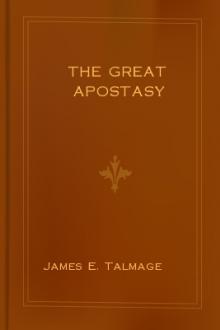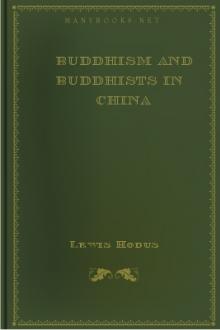Genre Religion. Page - 6
No registration or authorisation! And it is all for free!

In the first chapter, § 7, she positively asserts that she was rather less than twelve years old at the death of her mother, whereas we know that she was at least thirteen years and eight months old. As to the profession we have overwhelming evidence that it took place on the 3rd of November, 1536, and her entrance in the convent a year and a day earlier. To begin with, we have the positive statement of her most intimate friends, Julian d'Avila, Father Ribera, S.J., and Father Jerome Gratian.

e chose twelve men, whom He ordained to the apostleship:--"And He ordained twelve, that they should be with Him, and that He might send them forth to preach."--(Mark 3:14.) Again: "And when it was day, he called unto him his disciples: and of them he chose twelve whom also he named apostles."--(Luke 6:13; compare Matt. 10:1, 2.) The twelve special witnesses of Him and His work were sent out to preach in the several cities of the Jews. On this, their first mission, they were

e of a personal God.Conscience in man says: "Thou shalt," and "Thou shalt not," "I ought," and "I ought not." These mandates are not self-imposed. They imply the existence of a Moral Governor to whom we are responsible. Conscience,--there it is in the breast of man, an ideal Moses thundering from an invisible Sinai the Law of a holy Judge. Said Cardinal Newman: "Were it not for the voice speaking so clearly in my conscience and my heart, I should be

teraryability and religious fervor to the spreading of the new religion andits success was in no small measure due to their efforts. As a result ofthis early association the tenets of the two religions seemed so muchalike that various emperors called assemblies of Buddhists and Taoistswith the intention of effecting a union of the two religions into one.If the emperor was under the influence of Buddhism he tried to force allTaoists to become Buddhists. If he was favorable to Taoism he tried

beginning anti-monastic. It is not rare for history to have similar contradictions to record. The meek Galilean who preached the religion of a personal revelation, without ceremonial or dogmatic law, triumphed only on condition of being conquered, and of permitting his words of spirit and life to be confiscated by a church essentially dogmatic and sacerdotal.In the same way the Franciscan movement was originally, if not the protest of the Christian consciousness against monachism, at least the

invariable custom of the house; and sat in a dead silence, that seemed natural to the great sober room.This, however, was not for want of a topic; on the contrary, they had a matter of great importance to discuss, and in fact this was why they dined tete-a-tete. But their tongues were tied for the present; in the first place, there stood in the middle of the table an epergne, the size of a Putney laurel-tree; neither Wardlaw could well see the other, without craning out his neck like a rifleman

l jealousy. Partly owing to the general downward tendency of the age, but mainly on account of the interference of the secular authorities with ecclesiastical appointments, the gravest abuses had manifested themselves in nearly every department of clerical life, and the cry for reform rose unbidden to the lips of thousands who entertained no thought of revolution. But the distinction between the divine and the human element in the Church was not appreciated by all, with the result that a great

is finding out. It "passeth knowledge" (Eph. iii. 19).Nothing speaks to us of the love of God, like the cross of Christ. Come with me to Calvary, and look upon the Son of God as He hangs there. Can you hear that piercing cry from His dying lips: "Father, forgive them; for they know not what they do!" and say that He does not love you? "Greater love hath no man than this, that a man lay down his life for his friends" (John xv. 13). But Jesus Christ laid down His

an respect to degrade hisChristian dignity. In whatever company he might be, he alwayssaluted the Blessed Sacrament when passing a Church; and he nevermet a priest without paying him a mark of respect. A word from hislips sufficed to silence whosoever dared blaspheme in his presence.In reward for his virtues, God showered even temporal blessings onHis faithful servant. In 1871 he was able to give up his businessas a jeweller, and retire to a house in the Rue St. Blaise. Themaking of point-lace,

miled slowly, showing a row of very white, strong teeth."I know, auntie," she said. "No; I shouldn't think Laurie'll mind much. Perhaps he'll go back to town in the morning, too." "No, my dear, he's staying till Thursday." * * * * * There fell again one of those pleasant silences that are possible in the country. Outside the garden, with the meadows beyond the village road, lay in that sweet September hush of sunlight and mellow color that seemed to embalm the